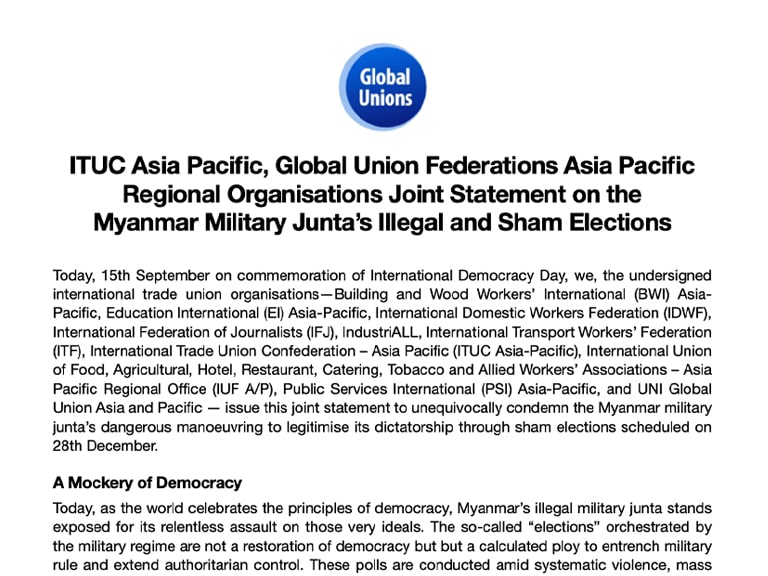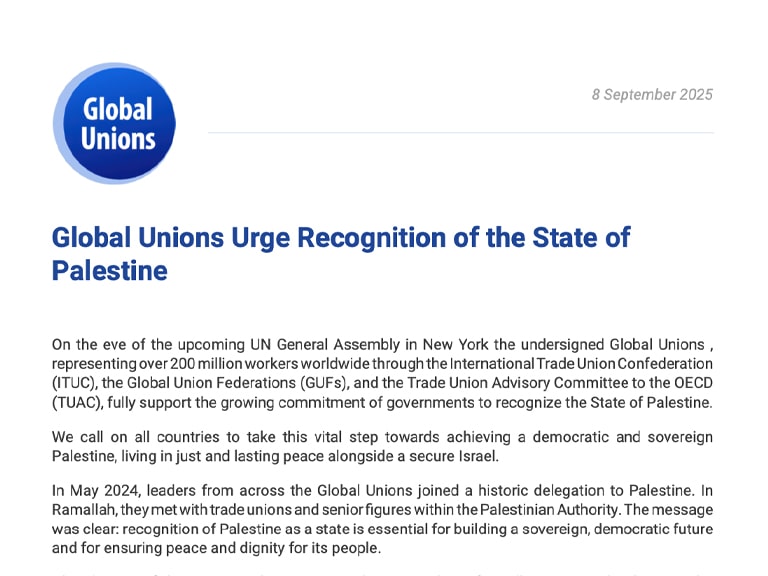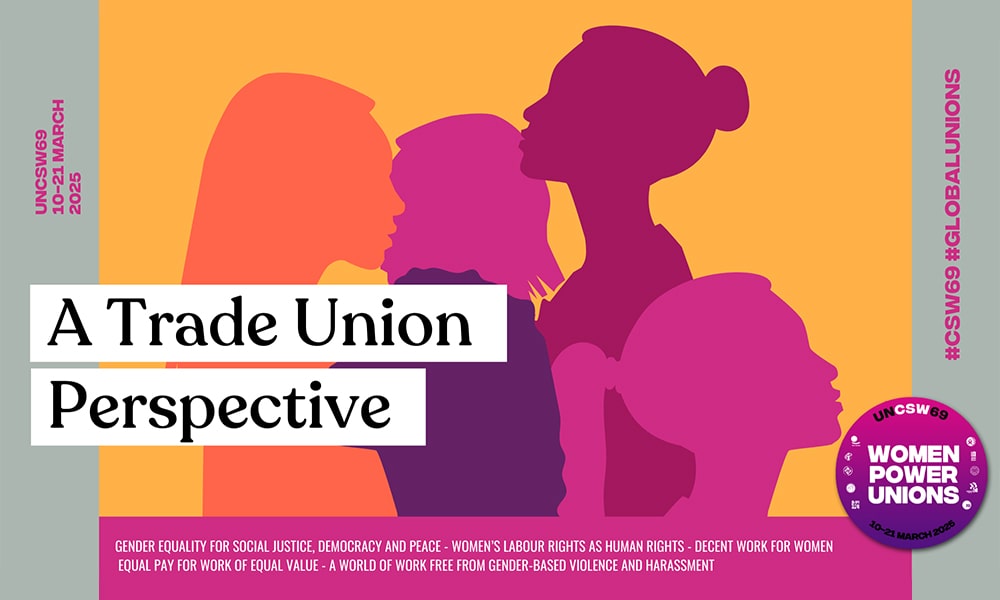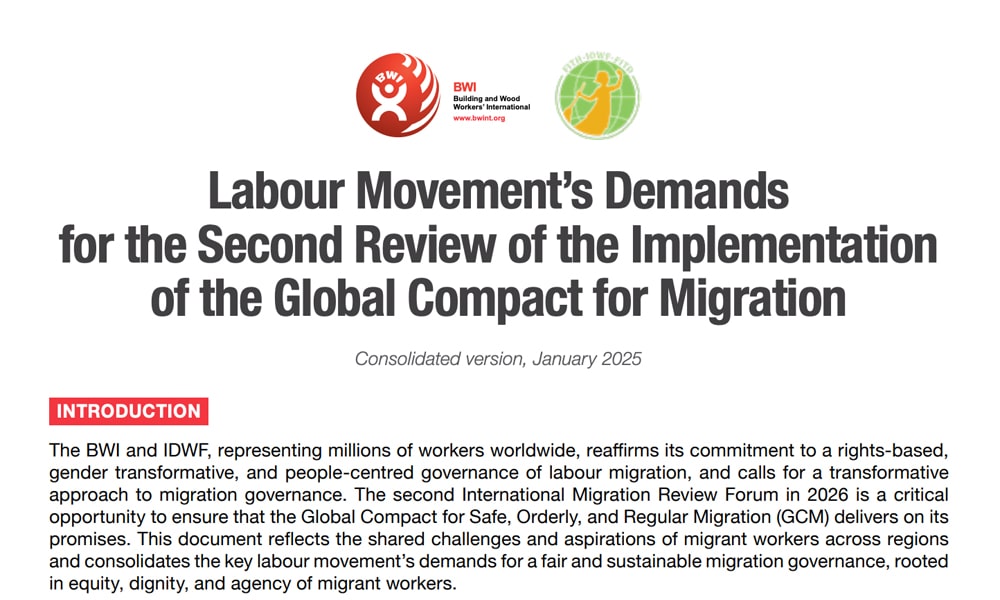Nothing for us without us!
On International Domestic Workers Day, the IDWF salutes its affiliates and over 76 million domestic workers who ensure the well-being of families worldwide, making all other work possible. Thirteen years after the adoption of ILO Convention 189, we reaffirm domestic workers as pillars of the care economy and remain steadfast in the fight for their right to decent work and the full exercise of their human rights.
Care Work is Crucial for the Future of Decent Work
Care is the foundation of humanity. And domestic workers (DWs) play a crucial role in meeting this fundamental need, caring for homes, children, the elderly, the sick, and people with disabilities. Our work allows others to participate in the labor market, with the peace of mind that their loved ones are well-cared for.
But despite our invaluable contribution to economy and society, domestic work is often undervalued, leading to precarious working conditions. Worldwide, 36.1% of DWs are excluded from national labor legislation, 50.1% are not legally entitled to social security benefits, and 81.2% are informally employed -which means they have no access to social protection (ILO, 2024). Informality results in long working hours, no rest time, low wages, and exposure to abuse, violence and harassment. These conditions must change, and thus, we reaffirm our commitment to continue fighting for recognition, leaving no one behind.
Speech by our president, Carmen Brítez, on the conclusions of the ILO Committee on “Decent Work and the Care Economy” at the closing ceremony of the International Labour Conference 2024.
Read our Position Paper: https://idwfed.org/wp-content/uploads/2024/05/112-th-Session-of-the-International-Labour-Conference-EN-ok.pdf
Call to Action
The growing demand for care highlights the essential role of DWs. To ensure everyone has access to quality care and protect the rights of those who provide it, the IDWF calls on society and decision-makers to take on the following actions:
- Recognition and Protection: DWs must be recognized as workers and care providers with fair remuneration and labor protection.
- Human Rights: Care is a human right. Everyone has the right to self-care, to receive care, and to provide care under decent conditions.
- Public Good: Care should be a public good, led by the State, based on universality, equity, inclusion, and solidarity.
- ILO’s 5R Framework: Care policies should be human rights-based and gender-sensitive, promoting decent work.
- Representation and Participation: DWs must be included in developing care policies and regulatory frameworks.
- Social Protection: DWs must have access to healthcare, retirement benefits, maternity benefits, and quality care services.
- Migrant Protection: Migrant DWs must be protected by law and in practice throughout their migration and employment journey.
- Formalization: Pathways to formalizing DWs should be prioritized, with recognition of their skills and access to training.
- Ratification of ILO Convention 189: Governments must ratify and implement this convention to recognize DWs as care workers.
United We Stand
Our movement has a long history of struggles and victories. Today, we stand united and stronger than ever. We emphasize the central role of domestic workers in the care economy and in building more resilient, just, and equitable societies.
In solidarity, we commemorate our affiliates and celebrate International Domestic Workers Day!
#CareForThoseWhoCareForYou
Download Here






